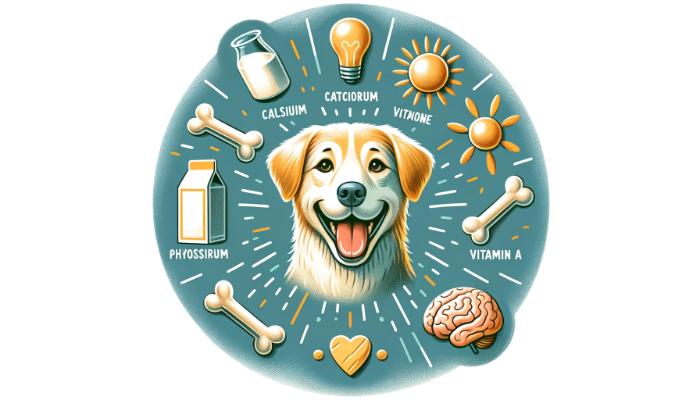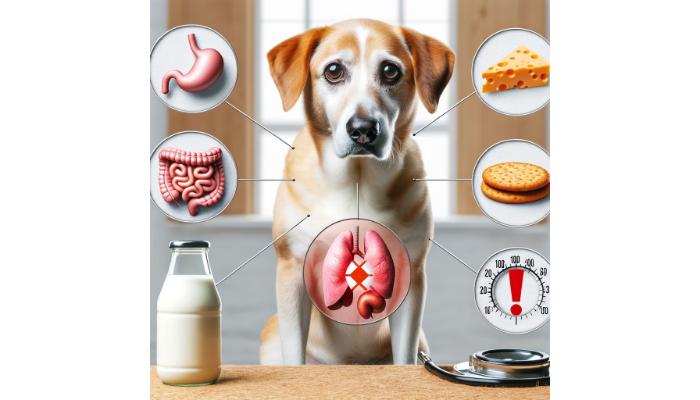Hey there, fellow dog lovers! I’m sure many of us have wondered at some point whether our furry friends can indulge in the deliciousness of cheese. Well, you’re in luck because today, I’m here to shed some light on the topic: are dogs allowed to have cheese?
Cheese is undoubtedly a crowd-pleaser among humans, but when it comes to our four-legged companions, things can get a little tricky. While some dogs can tolerate cheese without any issues, others might experience digestive discomfort or even allergies. In this article, we’ll explore the factors that determine whether cheese is safe for dogs to consume, the potential benefits and risks, and some guidelines to keep in mind if you decide to share a cheesy treat with your canine companion.
Factors that Determine Whether Cheese is Safe for Dogs:

When it comes to feeding cheese to dogs, there are several factors that need to be considered to determine if it is safe for them. Here are some key factors that I take into account:
1. Lactose Intolerance
Lactose intolerance is a common issue among dogs. Like humans, some dogs lack the enzyme needed to digest lactose, the sugar found in milk and dairy products. This can lead to digestive discomfort, including gas, bloating, diarrhea, and upset stomach. If your dog is lactose intolerant, it’s best to avoid giving them cheese or any other dairy products.
2. Allergies
Another factor to consider is whether your dog has any food allergies. Some dogs are allergic to certain proteins found in cheese, such as casein or whey. If your dog experiences symptoms like itching, hives, vomiting, or diarrhea after consuming cheese, it’s possible that they are allergic to it. In such cases, it’s important to avoid giving them cheese to prevent an allergic reaction.
3. High Fat Content
Cheese is known for its high fat content, which can pose health risks for dogs. Dogs that consume too much fat can develop pancreatitis, a condition characterized by inflammation of the pancreas. This can cause symptoms like abdominal pain, vomiting, diarrhea, and loss of appetite. It’s important to monitor the fat intake of your dog and limit their consumption of high-fat cheeses.
4. Portion Control
Even if your dog can tolerate cheese and doesn’t have any allergies, it’s essential to practice portion control. Cheese should be given as an occasional treat and not as a regular part of their diet. Remember, moderation is key when it comes to feeding any human food to your furry friend.
By considering these factors, you can make an informed decision about whether to give cheese to your dog. If you’re uncertain or have any concerns, it’s always a good idea to consult with your veterinarian for personalized advice.
Benefits and Risks of Dogs Consuming Cheese:
Benefits of Dogs Consuming Cheese:
When it comes to feeding our furry friends, it’s important to determine what foods are safe and healthy for them. Cheese is a popular treat that many dog owners wonder about. While dogs can technically have cheese, there are both benefits and risks to consider.

- Protein and Calcium: Cheese is a good source of protein and calcium, which are essential for dogs’ overall health and development. These nutrients contribute to strong bones and muscles.
- Vitamins and Minerals: Cheese contains various vitamins and minerals that can be beneficial to dogs, including vitamin A, vitamin B12, and zinc. These nutrients support their immune system and provide an energy boost.
- Training Treat: Cheese can be a high-value reward during training sessions. Its strong aroma and rich taste can motivate dogs and help reinforce positive behaviors.
Risks of Dogs Consuming Cheese:

- Lactose Intolerance: Dogs, like some humans, can be lactose intolerant. Lactose is the sugar found in milk, and some dogs do not produce enough of the enzyme lactase to properly digest it. This can lead to digestive discomfort, including gas, diarrhea, and bloating.
- Food Allergies: Cheese, especially certain varieties such as blue cheese, can cause allergic reactions in some dogs. These reactions can manifest as itching, skin rashes, and digestive issues.
- High Fat Content: Cheese is high in fat, which can be problematic for dogs. Consuming too much fat can lead to pancreatitis, a serious condition that causes inflammation of the pancreas. Symptoms of pancreatitis in dogs include vomiting, abdominal pain, and loss of appetite.
It’s essential to remember that while cheese can have some benefits for dogs, it should only be given in moderation. It’s not recommended to make cheese a regular part of their diet due to the potential risks associated with it. Consult with your veterinarian to determine if cheese is suitable for your dog and to get personalized advice on portion sizes and frequency.
Cheese can be a tasty treat for dogs, but it’s important to be aware of the potential benefits and risks. Consider your dog’s individual needs, such as lactose intolerance or food allergies, and consult with your veterinarian for guidance. Remember, moderation is key when it comes to feeding cheese to your furry friend.
Guidelines for Giving Cheese to Dogs:
When it comes to giving cheese to dogs, it’s important to follow some guidelines to ensure their safety and well-being. Here are a few key points to keep in mind when sharing this delicious treat with your furry friend:
1. Choose the right type of cheese – Not all cheeses are created equal when it comes to dog consumption. While some cheeses, like cheddar and mozzarella, are generally safe for dogs, there are a few types that should be avoided. Blue cheeses, such as Roquefort or Gorgonzola, contain high levels of mold, which can be harmful to dogs. Similarly, cheeses with added herbs or spices may contain ingredients that can be toxic to them.
2. Start with small portions – Just like with any new food, it’s important to introduce cheese to your dog’s diet gradually. Start with small amounts and observe how your dog reacts to it. Some dogs may be more sensitive to dairy products, so it’s always good to monitor for any signs of digestive upset or allergies.
3. Be aware of lactose intolerance – Dogs, just like some humans, can be lactose intolerant. Lactose is the sugar found in milk, and dogs may not have enough of the enzyme lactase to break it down properly. This can lead to digestive issues, such as diarrhea or stomach upset. If you notice any of these symptoms after giving your dog cheese, it might be best to avoid it in the future.
4. Avoid excessive amounts – While cheese can be an enjoyable treat for dogs, it’s important to remember that moderation is key. Cheese is high in fat and calories, which can contribute to weight gain and other health problems if consumed in excess. Limit the amount of cheese you give to your dog to maintain a balanced diet.
5. Consult with your veterinarian – Every dog is different, and what may be safe for one dog may not be suitable for another. It’s always a good idea to consult with your veterinarian before introducing any new food to your dog’s diet, including cheese. They can provide personalized advice based on your dog’s specific needs and health conditions.
Can Dogs be Allergic to Cheese?

As a veterinarian, I am often asked about the potential allergies that dogs can have, especially when it comes to their diet. One question that comes up frequently is whether dogs can be allergic to cheese. The short answer is yes, dogs can indeed be allergic to cheese, just like humans can be allergic to certain foods.
While cheese is generally safe for dogs to consume, it’s important to be aware of any potential food allergies or intolerances that your dog may have. Allergies occur when a dog’s immune system mistakenly identifies a specific protein in the food, such as the proteins found in cheese, as harmful. This triggers an allergic reaction, which can range from mild to severe.
Some common signs of a cheese allergy in dogs include:
- Itchy skin
- Redness or rashes
- Digestive issues (vomiting or diarrhea)
- Sneezing or coughing
- Ear infections
If you notice any of these symptoms after giving your dog cheese, it’s best to consult with your veterinarian. They can help determine if your dog is indeed allergic to cheese or if there may be another underlying issue causing the reaction.
It’s worth noting that lactose intolerance is separate from a cheese allergy. Dogs, like some humans, may have difficulty digesting lactose, the sugar found in milk and cheese. This intolerance can lead to digestive upset, including diarrhea or gas. However, lactose intolerance is not an allergic reaction and is more related to a dog’s ability to break down lactose.
While dogs can be allergic to cheese, it’s important to monitor your dog for any signs of an allergic reaction after consumption. If your dog exhibits any symptoms, it’s best to consult with a veterinarian. Additionally, keep in mind that some dogs may have difficulty digesting lactose, which can lead to digestive upset. As with any food, it’s crucial to introduce cheese to your dog’s diet gradually and in moderation to ensure their safety and well-being.
Conclusion:
When it comes to dogs and cheese, it’s important to be aware of the potential for allergies. While cheese is generally safe for dogs, some can develop allergic reactions just like humans. Symptoms of a cheese allergy in dogs may include itchy skin, digestive issues, sneezing, and ear infections. If you notice any of these symptoms after giving your dog cheese, it’s best to consult with a veterinarian.
It’s also important to note that lactose intolerance is different from a cheese allergy and can cause digestive upset. If your dog has a known intolerance to lactose, it’s best to avoid giving them cheese altogether.
Remember to introduce cheese to your dog’s diet gradually and in moderation. Keep an eye out for any signs of an allergic reaction and adjust accordingly. Your dog’s health and well-being should always be a top priority, so it’s important to make informed decisions when it comes to their diet.
While cheese can be a tasty treat for dogs, it’s important to be mindful of their individual needs and potential allergies. By being attentive and responsible, you can ensure that your furry friend stays happy and healthy.
Frequently Asked Questions:
Yes, dogs can be allergic to cheese. While cheese is generally safe for dogs to consume, they can develop allergies to it just like humans.
The symptoms of a cheese allergy in dogs include itchy skin, redness or rashes, digestive issues, sneezing or coughing, and ear infections.
If your dog shows signs of a cheese allergy, it is advisable to consult with a veterinarian. They can provide proper guidance and recommend suitable options for your dog’s diet.
No, lactose intolerance is separate from a cheese allergy. While lactose intolerance can cause digestive upset, a cheese allergy can manifest with various symptoms beyond digestive issues.
It is important to introduce cheese to your dog’s diet gradually and in moderation. Monitor your dog for any signs of an allergic reaction and consult with a veterinarian if necessary.

Hey there, I’m Janet Brooks, a dog-loving student from California. I’m all about helping pups in need, especially those without homes. Me and my awesome friends work together to give shelter and love to stray dogs. Oh, and I also write blogs about dogs to share helpful info.